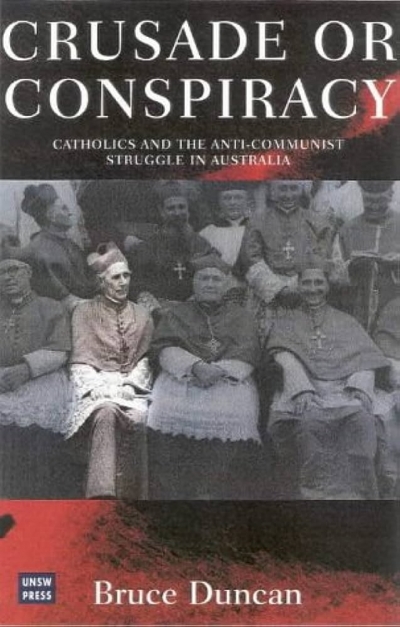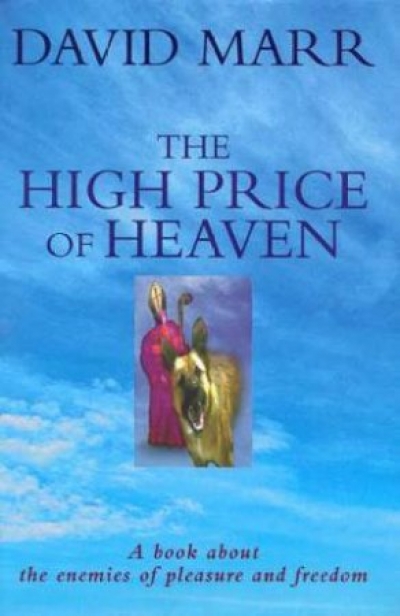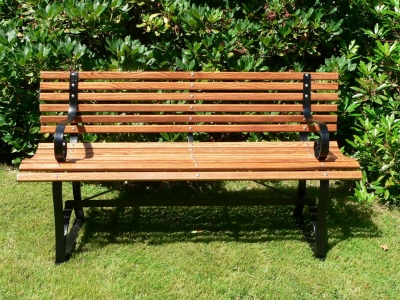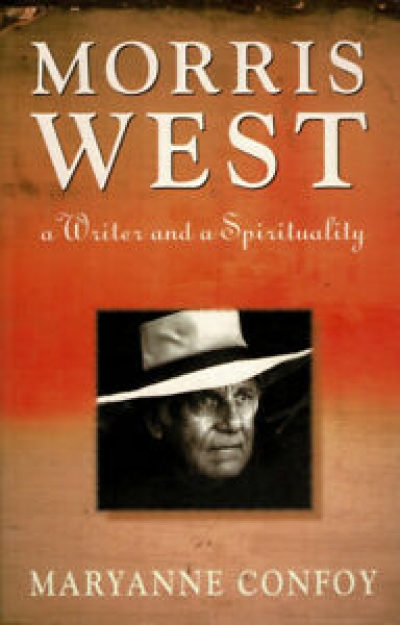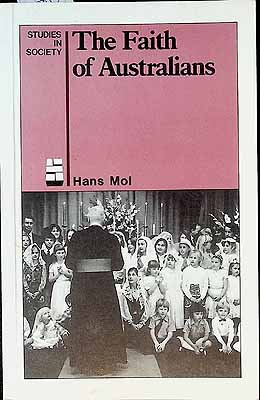Religion
Crusade or Conspiracy?: Catholics and the anti-communist struggle in Australia by Bruce Duncan
This lengthy analysis of Catholics and the anti-Communist struggle in Australia during the 1950s uncovers important and previously unreleased primary sources. In line with the author’s background as a Catholic Redemptorist priest, this particularly applies to material from Australian church archives and those of the Vatican, and from the files of B.A. Santamaria’s anti-Communist ‘Movement’. At the time, Santamaria’s ‘crusade’ against the atheistic and allegedly revolutionary Communist Party was strongly supported by the Redemptorist order, especially in Victoria.
... (read more)It’s usually said that Australians are uninterested in the metaphysical. Where in America the lines between the secular and religious are notoriously blurred, not least in their politicians or sporting heroes invoking God on almost every conceivable occasion, Australians by contrast are held to be a godless lot, their mythologies entirely secular in form and meaning. God is rarely publicly invoked, except by ministers of religion whose particular business it is duly to do so.
... (read more)A strong sense of déjà vu attends my reading of the latest book by David Marr. Not only have some of the pieces collected in this volume been published in the popular press and weekend magazines, but the tone, direction, and intellectual content of this work seems wearily familiar. In The High Price of Heaven we find the sardonic, witty, disbelieving voice of secular reason and common sense. It is a voice that has enjoyed a lot of airplay in Australia over the last one hundred years and more. This voice finds religion to be a huge joke, making claims about reality and truth that cannot be supported by reason or tested by ordinary experience.
... (read more)You know you are getting old when one of your students, genuine in her puzzlement, says to you, ‘Who was Bob Santamaria?’ Santamaria? The most famous lay Catholic since Ned Kelly! The man whose machine split Australian Catholicism for a generation; whose politics kept Labor from office for two decades; whose disciples and friends still move through the corridors of power in church and state! To meet someone to whom Santamaria is an unfamiliar name is to know that you too will soon be history.
... (read more)Morris West: A writer and a spirituality by Maryanne Confoy
‘Until the last decade or so,’ writes Maryanne Confoy, ‘most people thought of spirituality, if they thought of it at all, as something for other people.’ It is certainly true that there is a new and quite sudden interest in spirituality in this country, and this book on the spirituality of Morris West is a timely addition to the growing tradition of – what can we call it? – ‘wisdom writing’ in contemporary Australia. It might be a symptom of the turn of the millennium, it might be a reaction to the craziness and fragmentation of the modern world, it might be a sign of cultural disorientation and the search for roots – however we attempt to account for it, spirituality and the quest for meaning is back on the public agenda and is in great demand. Just ask your local bookseller.
... (read more)I was supercilious towards Italy and Italians before seeing Italian films and reading Curzio Malaparte’s novels. Malaparte foiled the superciliousness while the films’ backgrounds, something as simple as sunlight in the squares, intrigued. Previously France had provided an alternative to Anglo-Saxon culture. An Irish heritage set me askew to Anglo-Saxondom, but it did not give me another language as English had supplanted Gaelic. In any case, Ireland was the past and a somewhat mythic past at that. My parents were attached to Ireland but even their parents had been born in Australia. Indeed there had been no direct contact with Ireland since the mid-nineteenth century; it was the past you could not reach but only romanticise. Being of Irish origin meant being Catholic outside the Anglo-Protestant Pale.
... (read more)David Ireland has been writing for us nigh on twenty years now and this, his ninth novel, more than slightly autobiographical one suspects, allows a perspective on his corpus in all the ambiguity of the term.
... (read more)Alas there must be ten sentences in Ronald Conway’s autobiography which begins with ‘Alas’. Yes, it is a buoyant, if absurd book, not a dirge, and the most interesting lass in it is 'a lady named Audrey’ (no surname), a reputed psychic and palmiste (excuse me, ladies!), who gave Conway a ‘reading’ in 1958 (he was then over 30) and told him that he ‘wore ... a sinister aura of mental disturbance’. However, not to worry', this aura was not his but belonged to a person he had previously been with. Fortunately this was not Archbishop Mannix but a former student whom Conway was counselling and who subsequently killed his mother. Lady Audrey Whatshername told Conway ‘crisply’ that he would ‘become very well known ... a doctor of the mind who will help a great many people. You will be an instrument in the hands of God’. Conway, who is almost Dickensian about his ‘humility’, says ‘the reader can decide’ whether Audrey was just guessing or not (p. 70).
... (read more)Hans Mol, who, though of Dutch birth, has many ties with Australia, is professor of Sociology of Religion at McMaster University in Canada. His Religion in Australia being out of print, he has now produced a new book on the same subject. The opening passages inform us that religion is on the periphery of Australian society and that it is ethnically based.
The historic mainline churches, Anglican, Catholic, Presbyterian and Methodist, demonstrate both theses amply, while the post-war influx of adherents of Orthodoxy and Islam are further instances of the latter. The first chapter provides a detailed demographic study of religious adherence, followed by a discussion of the sects. This highly charged term is used in a -non-pejorative sense to indicate a ‘particular religious body [which] tends to stress its marginality and separateness in a particular society and tends to attract individuals who are marginal.
... (read more)Why do Catholic priests, actual or technical celibates, all persist in writing books about sexuality? Sceptics and natural adversaries of the Roman ecclesial discipline will doubtless respond ‘because they are fascinated with what is denied to them’. True in many cases, but, overall, too neatly pejorative to be entirely convincing. As the late Kenneth Clark reminded us, the extremes of Protestant puritanism have held more fear and rejection of the body than Rome ever did in her most repressive periods. Even so, Australian and New Zealand Catholicism has always been both formed and deformed on sexual issues by the legacy of its Irish past. Since the 17th century where the native Irish clergy were heavily tainted with the Jansenist heresy in French seminaries, the baleful Hibernian attitude to sex has been unique in Christendom. To our colonial Irish forbears, gambling, improvidence, drunkenness, and pugnacity were indeed confessional matters, but the fires of hell itself awaited the sexually incontinent.
... (read more)

